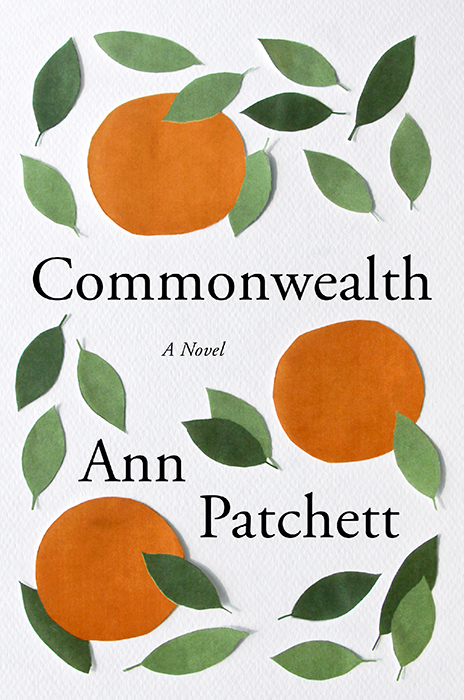ABOUT BOOKS
By Joan Bauer
COMMONWEALTH by Ann Patchett
HarperCollins
Pay close attention when you read Ann Patchett’s seventh novel, Commonwealth. It begins at a baby’s christening party on an impossibly hot day. Ice is needed. Relief is needed. There are too many people in the Keatings’ house, too many in the yard. The Catholic priest is hiding from the crowd, sensing something in the air. And Bert Cousins comes to the door, an uninvited guest, a lawyer, a man who is trying to escape his needy wife and young children, and he has brought a large bottle of gin as his christening gift. Gin, it turns out, is what many of the guests need, but no one more than Beverly Keating, the hostess and baby Franny’s mother, a woman so beautiful that men are drawn to her like moths to light. When Bert Cousins sees Beverly, he just feels that something is about to change. So he kisses a married woman in her house with her police officer husband downstairs…and she doesn’t resist. It was “the magic of gin and orange juice. This was the start of his life.” That stolen kiss causes one new family to begin and two others to crash and burn.

It would be easy to hate Beverly and Bert for this, and it’s to Patchett’s credit that she doesn’t ever allow Commonwealth to become mired in black and white thinking. She gloriously bends time, moving us forward and backward to understand why people do stupid things and how they live and ache under the weight of those decisions. She is a writer with a rare understanding of human nature, and she shows us the depth of her people in sometimes innocuous moments. Beverly’s ex-husband says this to his daughter Franny right before his chemotherapy: “Your mother didn’t have her own character. She turned into anyone she was sitting next to.” She shows children scarred by adultery and scorned spouses hurt and bitter. Her exploration of children being cast into one big happy family and shuttled back and forth between newly married parents is achingly real. There are many characters here to keep track of, and the reader ought not to let one character drop because the third person narrative is exquisitely polished and each voice, no matter how small, comes to life.
The story thread I found most fascinating is the adult Franny’s affair with a famous novelist who is decades older than she. In a moment of naïveté muddied by need, she tells him the story of her family without saying, “off the record.” He absorbs the drama, makes it his own, and turns it into a best-selling novel titled Commonwealth, and there it is wherever books are sold. It is his story now, his interpretation, but not really, and we are left wondering about our own stories, and who owns them anyway. How do we allow them to change? How do we throw them away and start fresh? And what in the world does that mean?
Commonwealth is a good example of God being in the details. It is a careful accounting of bad choices and surprising grace written with perception and caution. In a world that says, well, let’s just move on and forget the negative stuff, Ann Patchett has written a masterful tale about how very hard it is to do that, but also how necessary.

Joan Bauer is a New York Times bestselling novelist and winner of the Newbery Honor Award, the LA Times Book Prize, and two Christopher Awards. Her latest novel is Soar, published by Viking/Penguin Random House. Connect with her on Twitter @joan_bauer or at joanbauer.com.





